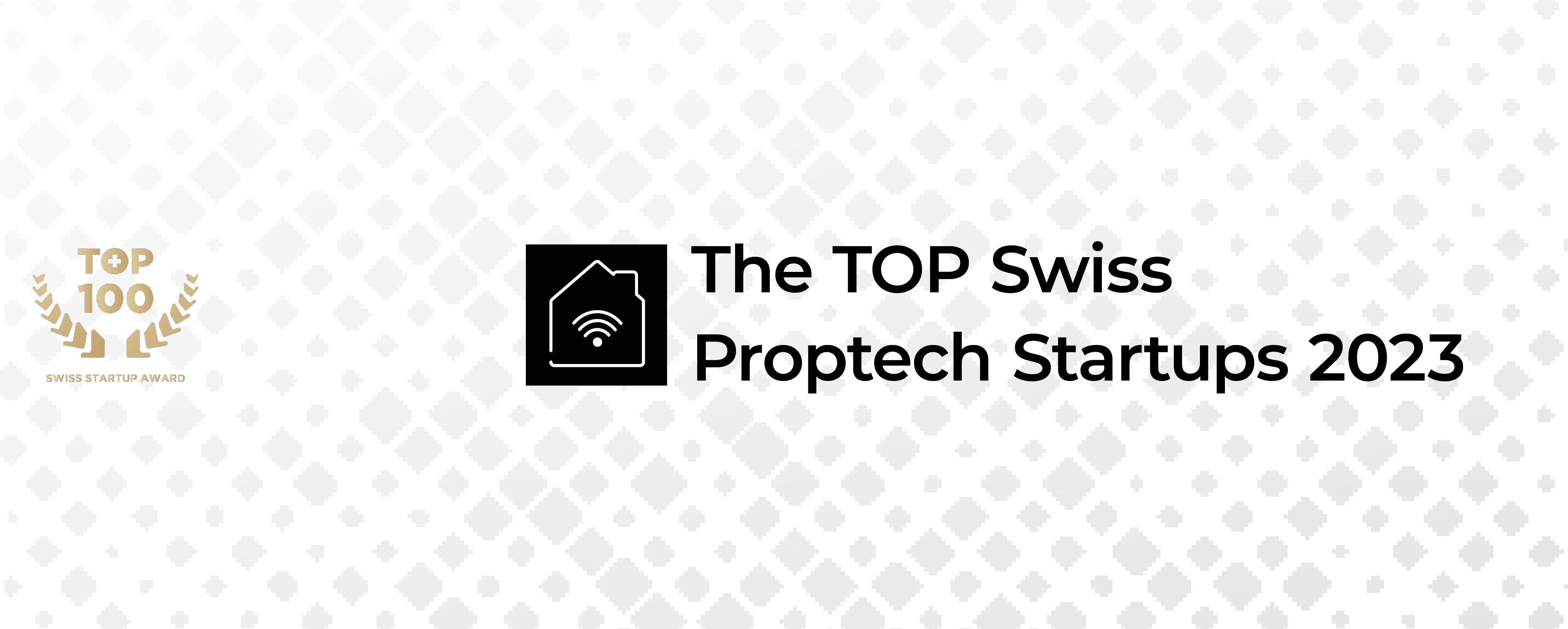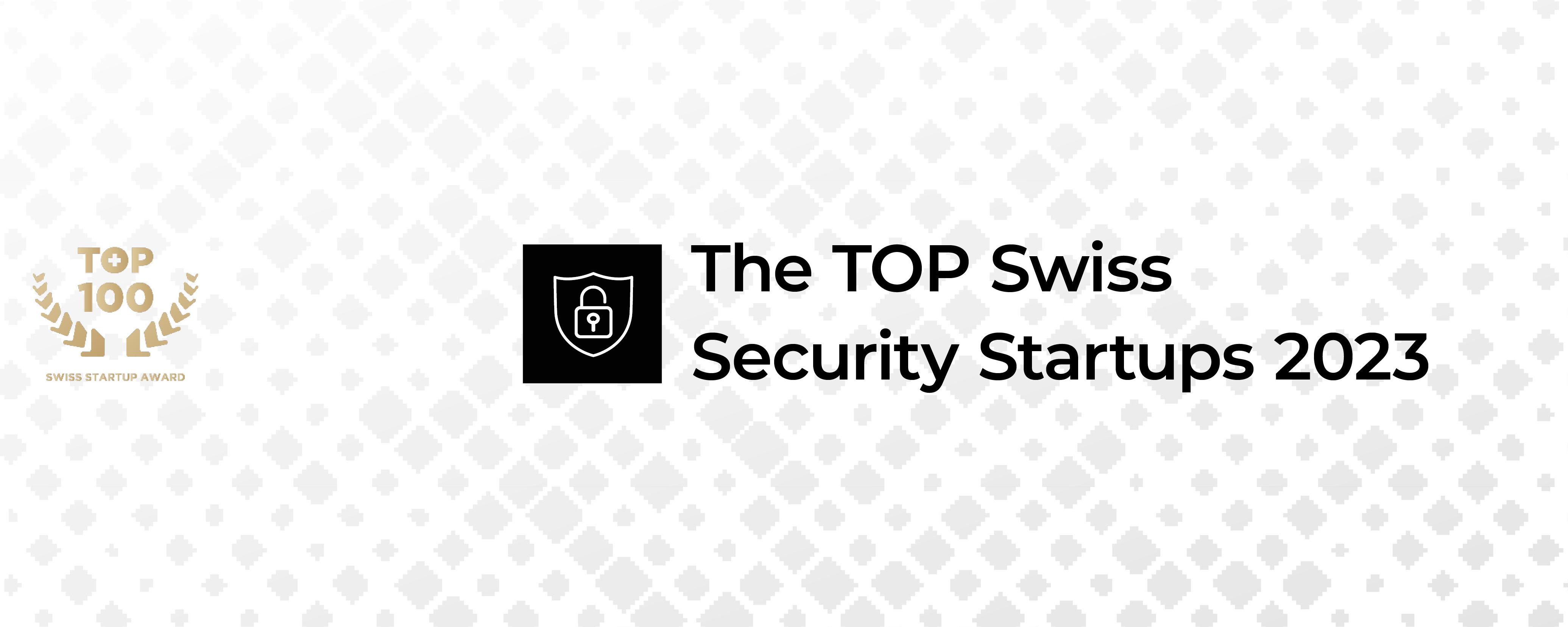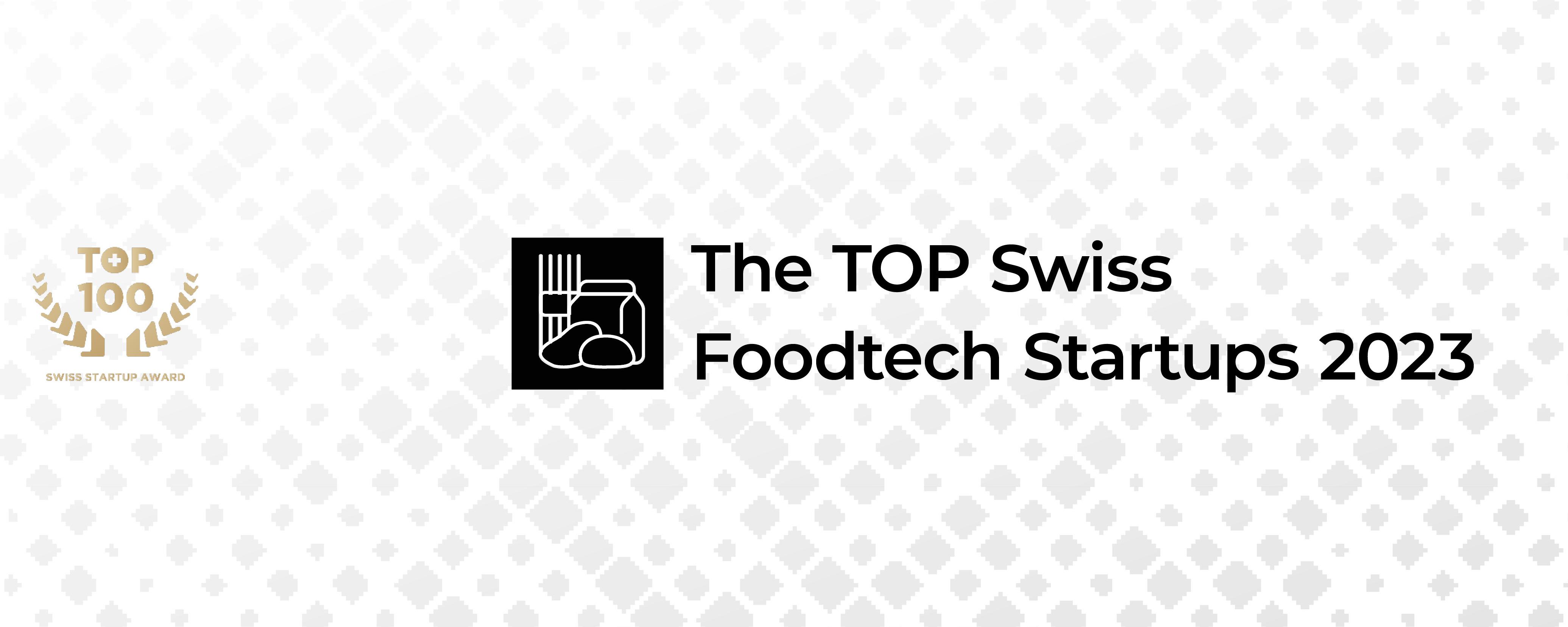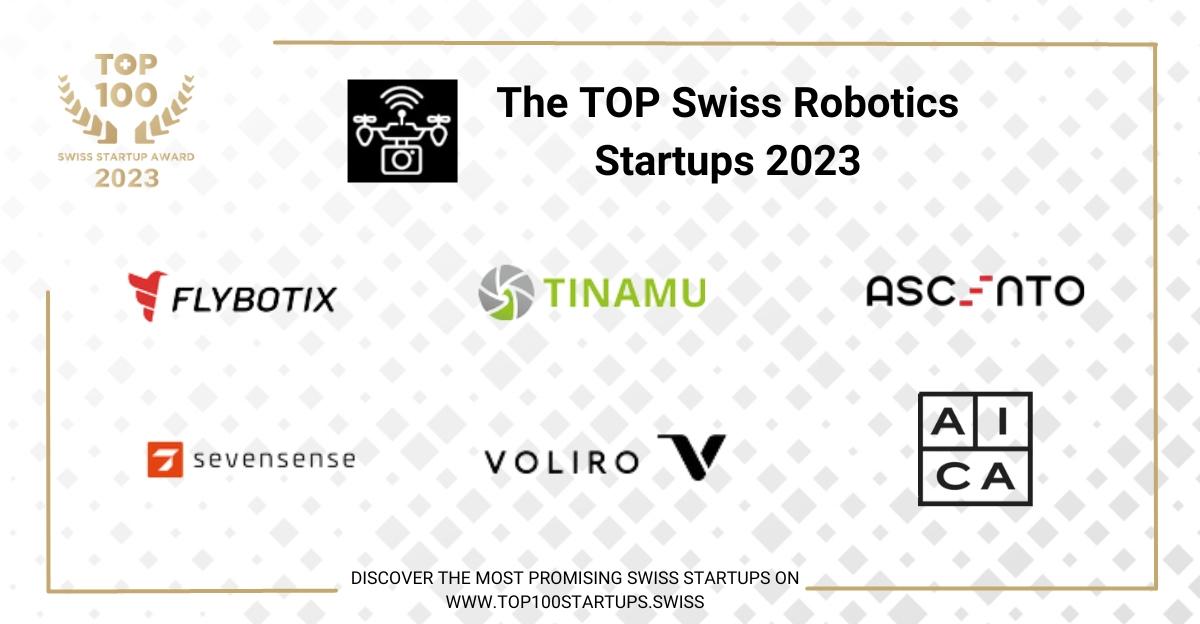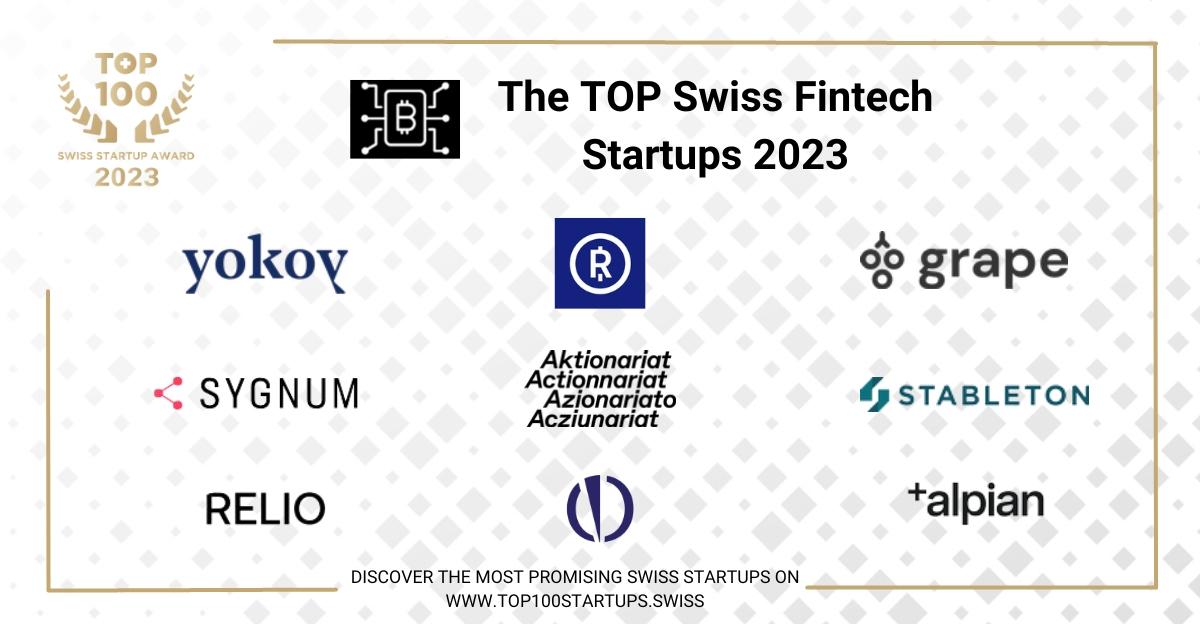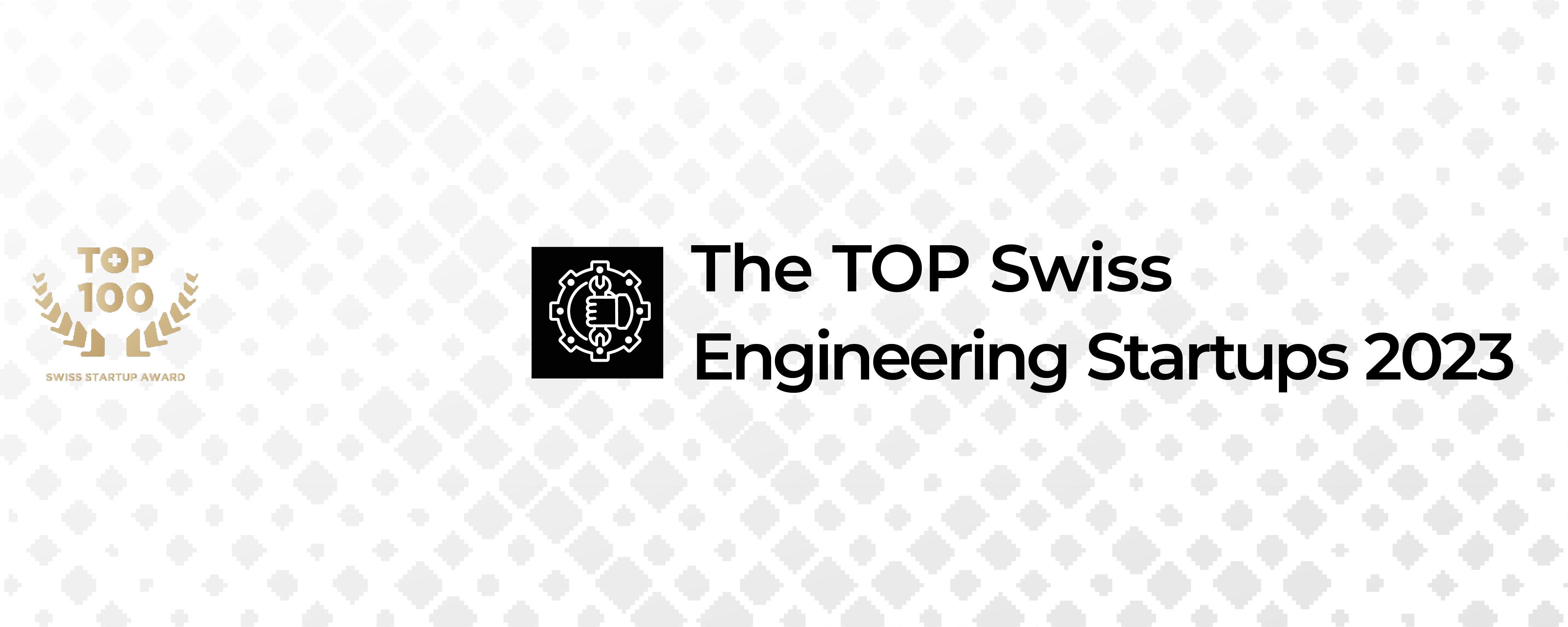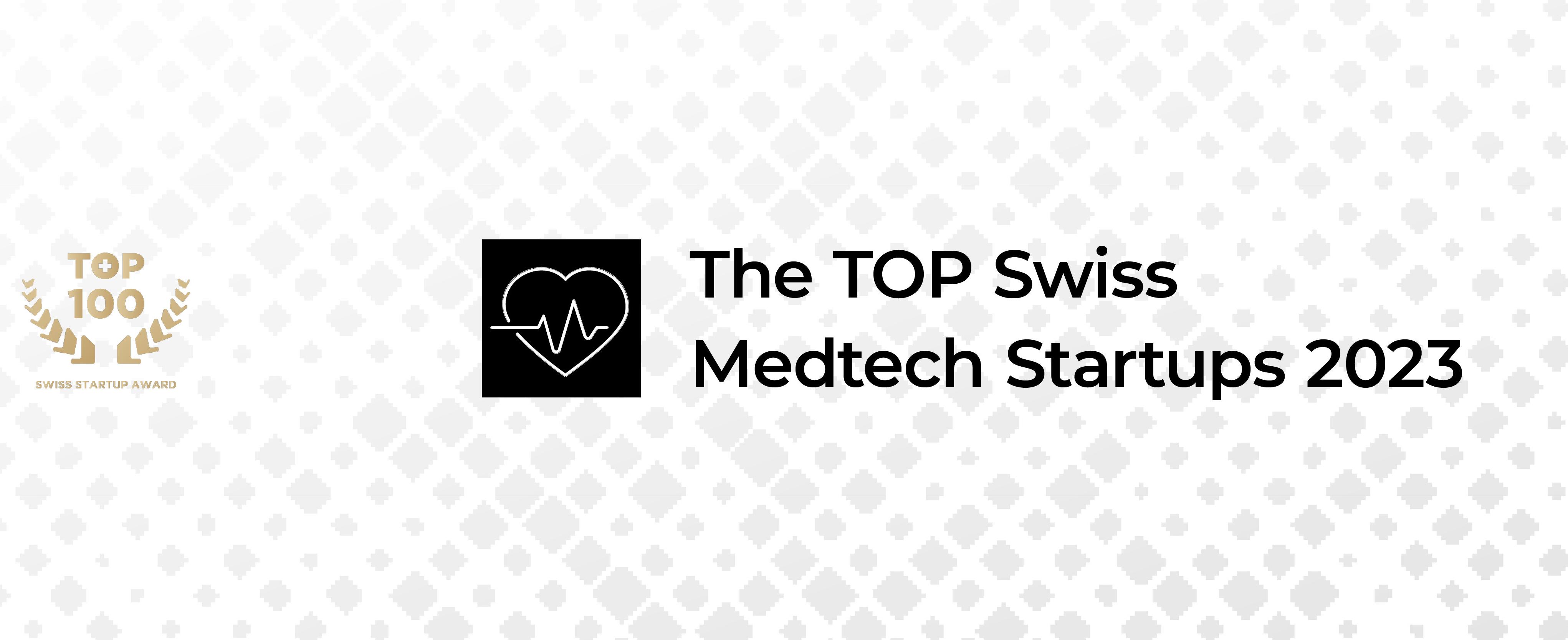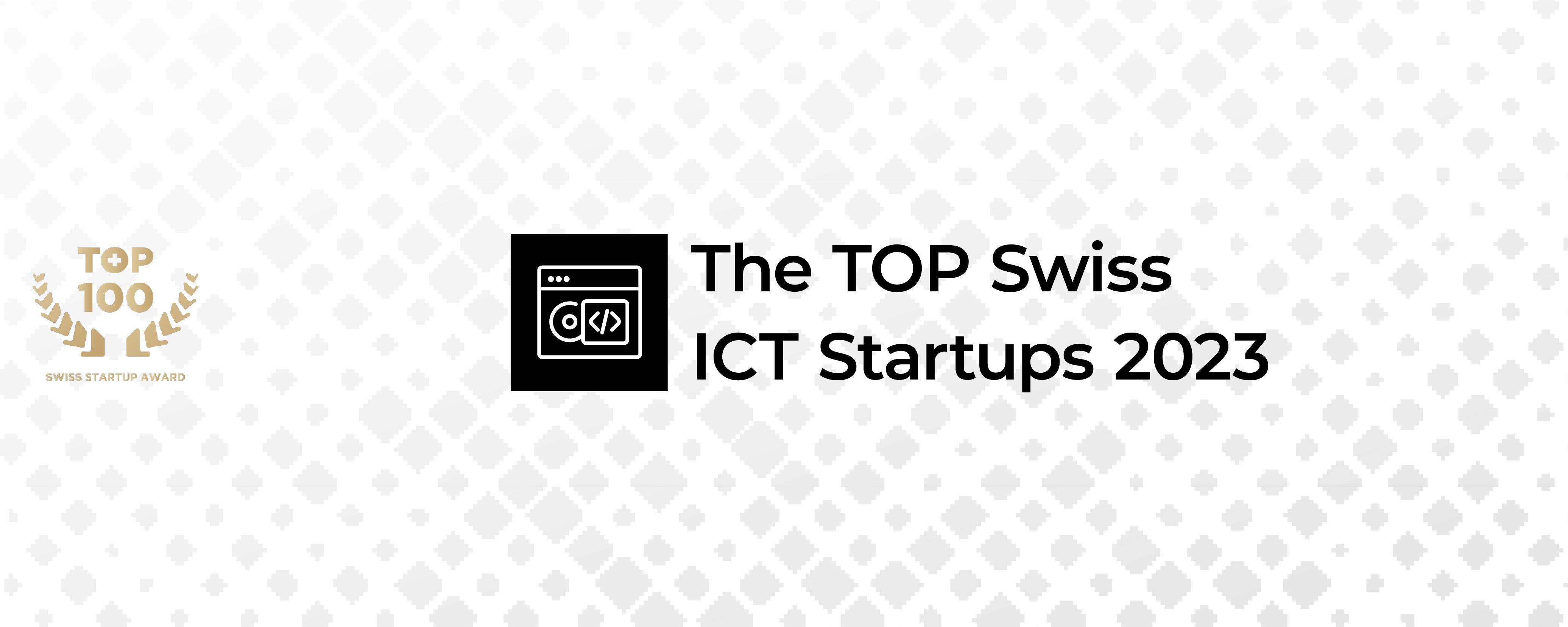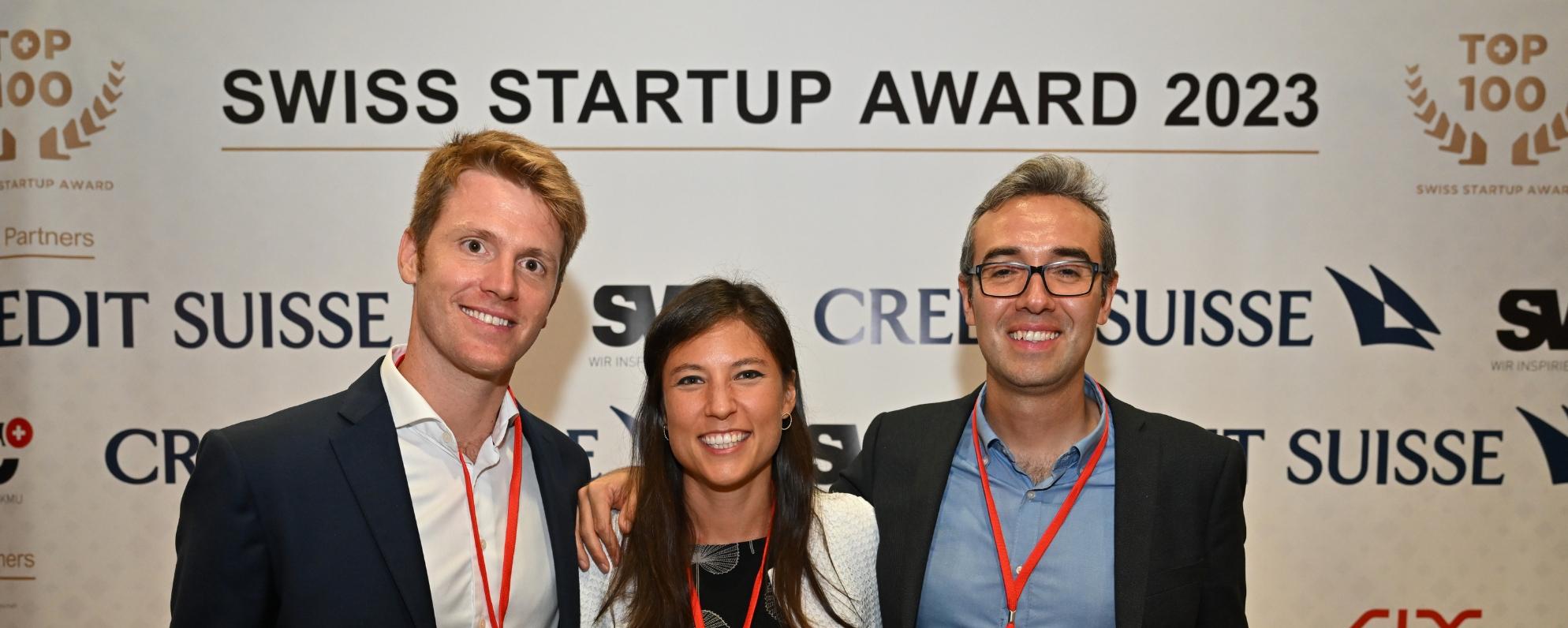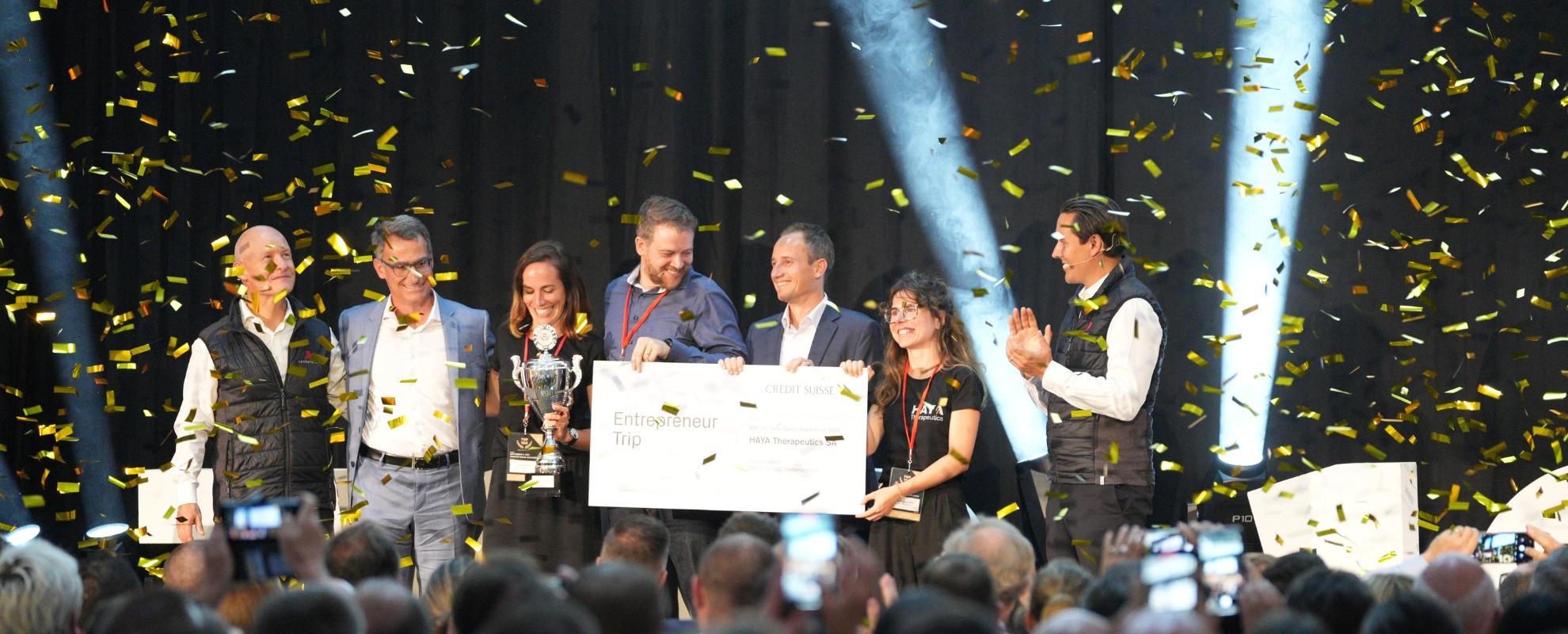The 15 most promising Swiss biotech startups of 2023, according to investors
26.09.2023 08:55
Rita Longobardi
The 100 most innovative and promising Swiss startups are picked by a panel of 100 leading investors and industry experts and are revealed at the TOP 100 Swiss Startup Award. In the ever-evolving landscape of the biotech industry, this year has once again showcased the sector's dynamism in boosting revolutionary innovations. 15 pioneering startups have emerged as the flagbearers, with HAYA Therapeutics leading the charge as the winner of the TOP 100 Swiss Startup Award. Learn more about these biotech 15 emerging companies that promise to redefine the future of scientific discovery.
 The annual ranking of the TOP 100 Swiss Startups has become a benchmark in Switzerland’s startup ecosystem—and beyond. Every year, a panel of 100 leading investors and startup experts chooses the 100 most innovative and promising Swiss startups. Each jury member nominates 10 Swiss startups that are fewer than five years old and show the greatest commercial potential. The first-placed company receives 10 points, the second nine points, and so on. The individual rankings are compiled to generate the final TOP 100 Swiss Startup Award ranking. In parallel, the TOP 100 Public Voting allows everyone with a LinkedIn account to cast one vote and choose the most promising startup per vertical.
The annual ranking of the TOP 100 Swiss Startups has become a benchmark in Switzerland’s startup ecosystem—and beyond. Every year, a panel of 100 leading investors and startup experts chooses the 100 most innovative and promising Swiss startups. Each jury member nominates 10 Swiss startups that are fewer than five years old and show the greatest commercial potential. The first-placed company receives 10 points, the second nine points, and so on. The individual rankings are compiled to generate the final TOP 100 Swiss Startup Award ranking. In parallel, the TOP 100 Public Voting allows everyone with a LinkedIn account to cast one vote and choose the most promising startup per vertical.
Discover the 15 biotech startups that impressed the TOP 100 Jury and the public the most with their innovative solutions.

HAYA Therapeutics, #1
Twenty years ago, it was thought that the essential building blocks of the human genome had been decoded. But this optimism was premature: about 98% of our DNA is still referred to as dark matter (‘dark genome’) – in other words, unknown territory. Researchers and companies hope to find the answers to the question of which building blocks in the genome control which cell processes. A lot of research still needs to be done in order that all molecular biological processes can be understood. In the future, this would open up the possibility of treating diseases in a targeted and effective manner; for example, fibrosis where fibrotic tissue, which is responsible for wound healing, multiplies unchecked. In the case of cardiac fibrosis, the heart wall thickens, performance decreases, and can lead to heart failure. Apart from a heart transplant, almost no effective treatment exists. Lausanne-based biotech startup HAYA Therapeutics is one of the first companies in the world to get things moving: in 2017, the team led by molecular biologist Samir Ounzain identified the trigger for cardiac fibrosis at the University Hospital of Lausanne – a long, non-coding RNA molecule (IncRNA) called Wisper. Based on these findings, from 2019 co-founder Daniel Blessing developed a customized drug.
Araris Biotech, #14
The linker technology developed by Araris Biotech enables cancer treatment drugs to dock onto ‘standard’ antibodies, thus allowing the active ingredients to reach the cancer cells directly. The acquisition of the Nectin-4 antibody from
US pharmaceutical company ARS this spring means Araris can expand its pipeline for treating solid tumours with antibody-drug conjugates (ADCs). In addition to the USD 40 million raised so far, Araris has also secured an undisclosed investment from Samsung Ventures in the current series A round.
MUVON Therapeutics, #19
Up to 60% of all women over the age of 40 suffer from involuntary urine leakage during exertion or physical activity. This is extremely uncomfortable for those affected and severely restricts their everyday lives. MUVON Therapeutics has taken a key step towards an effective therapy with its platform for regenerating skeletal muscle tissue. The clinical phase 1 study has shown that skeletal muscle injections into the bladder sphincter can restore muscle function and strength in affected women.
EraCal Therapeutics, #20
EraCal Therapeutics operates a research platform for active substances to combat obesity, and the first drug candidate has emerged from this. The biotech spin-off from the University of Zurich and Harvard has been collaborating with Nestle Health Science since February. The goal is to develop first-line nutraceuticals for people with metabolic diseases.
Navignostics, #47
The startup, founded in April 2022, uses spatial single-cell proteomics and AI-based software to analyse tumour samples. The aim is to enable therapy selection tailored to the respective tumour phenotype and accelerate the development of oncology drugs. The University of Zurich spin-off raised CHF 7.5 million in a seed round in autumn 2022.
GlycoEra, #51
GlycoEra has developed a technology that allows the creation of antibodies with novel properties. These bifunctional biologics bind disease-causing proteins and transport them to organ cells, where they are broken down and eliminated from the body. GlycoEra was created as a spin-off from LimmaTech Biologics.
SEED Biosciences, #55
DispenCell, a pipetting robot, isolates body cells quickly and reliably and is much cheaper than before. The Vaud startup is opening the door to personalised medicine, and in early 2023 the company partnered with Molecular Devices, a leading provider of high-performance solutions for the life sciences, which is now the exclusive commercial supplier of DispenCell in the US and Asia. Thanks to the collaboration, SEED Biosciences expects to triple sales in the key markets of North America and APAC.
Annaida Technologies, #62
The success of vitro fertilisation (IVF) depends on the selection of the most viable embryo. But so far only the external shape and genetic make-up of embryos can be detected, and the success rate of IVF is about a third. EPFL spin-off Annaida Technologies is developing a non-invasive screening method that visualises the biochemistry inside the embryo. The start of the clinical phase is scheduled for 2025.
InkVivo Technologies, #64
Acute post-operative pain is an underestimated clinical challenge. A biopolymer impregnated with painkilling and anti-inflammatory drugs aims to provide relief. As InkVivo Technologies’ material is designed for 3D printing, implantable patches, tablets and injectable biomaterials can be produced.
Recolony, #79
The spin-off from the University of Zurich is developing a novel, bacterial-based therapy for colorectal cancer. It aims to regenerate the intestinal flora of tumour patients in order to trigger a strong immune response. The first clinical trials are scheduled to take place at University Hospital Zurich in 2025.
ArcoScreen, #81
EPFL spin-off ArcoScreen has developed a platform that can identify the effect of a drug on a patient’s cells obtained directly from living tissue in just a few minutes. Compared with conventional tests, this technology enables rapid and inexpensive identification of molecules that activate GPCR proteins – G protein-coupled receptors (GPCRs) play an important role in the transduction of signals.
Alentis Therapeutics, #87
The Basel startup has developed antibodies that can be used to treat solid tumours and fibrosis. For the first time, the target is the CLDN1 proteins, which play a key role in tumour pathology. In spring 2023, Alentis Therapeutics closed a USD 105 million series C funding round. A first drug candidate for fibrosis is already being tested in humans.
Limula, #92
Cell and gene therapies (CGT) can save the lives of people with previously incurable diseases, including aggressive cancers. The cell processing platform developed by Limula focuses on CAR-T cell therapy: the patient’s immune cells are genetically modified in such a way that they are able to recognize and fight cancer cells.
Synendos Therapeutics, #95
Biopharmaceutical startup Synendos Therapeutics is developing selective endo-cannabinoid reuptake inhibitors that can be used in the treatment of neuropsychiatric disorders of the central nervous system. The Basel-based biotech startup is currently completing the preclinical phase.
Invasight, #99
Biotech startup Invasight develops therapies for highly proliferating cancerous growths by blocking tumour cells. The most advanced drug candidate has proven effective in initial tests on gastric, ovarian, and colorectal cancer models. Seed financing of CHF 4.5 million in summer 2022 gave the young company an additional boost in the development of its targeted therapies.
PUBLIC VOTING: Limula
Limula provides a unique automation technology for the scalable production of cell therapies. We are based in Lausanne, Switzerland. Our proprietary solution can perform sequential steps of Cell & Gene Therapy (CGT) manufacturing in a single device, using end-to-end automation and integrated process analytics. By combining our expertise and versatile tools, we support the rapid and cost-effective development of cell therapy products across different modalities, at all stages of their life cycle, facilitating the transition from R&D to commercial-scale production.
The 13th edition of the TOP 100 Swiss Startup Award 2023 celebrated Switzerland's best startups. Discover the cleantech startups and all the details in the TOP 100 Swiss Startup Magazine 2023 or follow the hashtag #TOP100SSU on Linkedin, Twitter, and Instagram for impressions.

 The annual ranking of the
The annual ranking of the 
